It is time to start considering pickpocketing as organised crime rather than simple petty crimes, said Inspector Kurt Zahra from the Criminal Investigation Department.
There is no doubt that the pickpockets work in organised groups, Zahra told The Malta Independent on Sunday.
The absolute majority of those arrested on such charges in Malta are Eastern Europeans. Zahra explained how these people normally spend a week or two in Malta and when they have stolen what they deem to be an adequate amount, they move to another country to continue their crimes over there.
In police circles, this is known as transnational organised crime as it is based around organised groups of people perpetrating such crimes in various different countries.
Zahra and Inspector Jonathan Ronsley spoke to The Malta Independent on Sunday about the very real phenomenon that pickpocketing has become in Malta, what the police is doing to combat it and how people can take precautions to avoid being a victim of these crimes.
Pickpocketing is a phenomenon that has developed in Malta over the past years. What is the current situation with this crime?
Zahra: Statistically speaking, there has been a drastic drop in pickpocketing. In July of last year, we had 255 reported cases of pickpocketing, but in July this year that number was down to 86. The localities where these crimes are reported have remained the crowded places and those packed with tourists, namely Sliema, Valletta and even Marsaxlokk lately. Essentially, what they normally do is just go on a bus and go around with it.
Do you get reports from Maltese people, or are tourists specifically targeted?
Zahra: There have been a number of reports involving Maltese victims; but one of the elements that pickpockets take into consideration is that the person does not know the environment they are in well. It is easier to rob a person who does not know the place than one who does because you want time on your side. Due to these factors, more tourists are victims of pickpocketing than Maltese are.
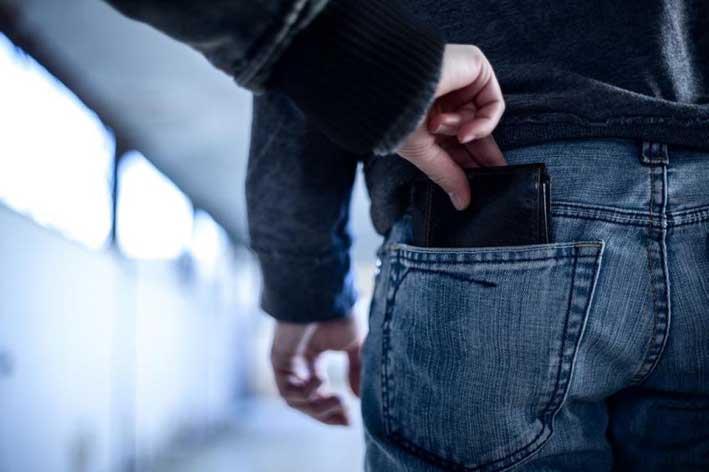
Do they work alone or is this organised crime?
Zahra: It is definitely organised crime. The absolute majority of arrests are Eastern Europeans who work in groups. They use a number of techniques most of which involve more than one person. Normally, they spend a week or two here and then move to another country to continue these crimes over there. We call this transnational organised crime, which is a type of crime that is organised across different countries, Mobile Organised Groups.
How do you go about proving these links to organised crime?
Zahra: In terms of organised crime, our laws are very open. You need to prove that someone is acting as part of an international organisation for it to be termed as organised crime. How does one go about proving it? This is the investigative element; the most basic is CCTV footage but the approach we take is on a case-by-case basis. If we arrest someone, the first thing we do is inform Europol of the arrest and get a response from them on whether they are known to them in other countries. This helps us identify whether they are part of an organised effort or not.
The perpetrators try to give the impression that they are poor and need money; but in reality they live in luxury thanks to their pickpocketing. I saw this first hand when I visited one such village in a particular Eastern European country.
Let's say they take a mobile phone- what happens to it?
Ransley: We've noted that in Paceville for instance there was a time when many mobile phones used to be stolen. In such cases, we sent a request to try and trace them, but we started to realise that a lot of them remained turned off. We figured out that perhaps they were being transported out of the country. It was always an assumption, but once we confirmed it because we had a tip and in the subsequent raid we found a bunch of phones inside a rolled towel, ready for the person to take to his country. Once they get to another country, we cannot trace them. However, nowadays we see more of a trend of money being stolen as opposed to phones. This is because mobiles can be traced, but it's more difficult if we find a stack of money to identify whether it was stolen from person A or person B.
When they are caught, do they talk?
Zahra: No, they don't. That's one of the things that actually tell us they're involved in organised crime. In the case of women, when they are arrested the story they present is skilfully honed to be emotionally convincing. We had one case in fact where a woman was literally caught red-handed because the person she was stealing from held her by the hand and kept her there; but even then she denied it, saying she was poor and just trying to feed her children. Aside from this though, there is very little chance of them saying that they're part of an organisation. Any talking done will be selling us the story that they're doing it to live.
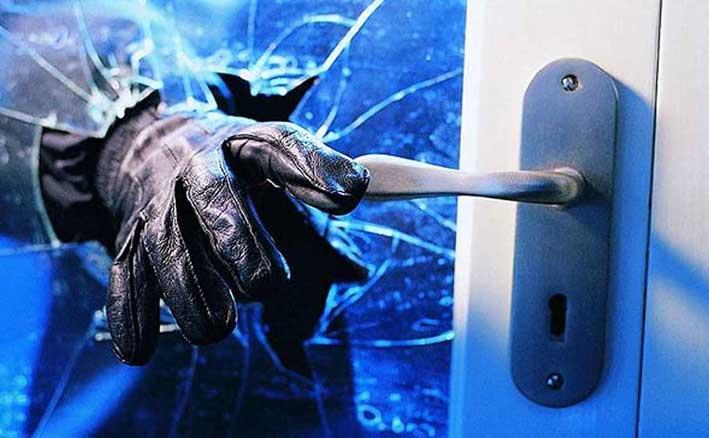
People make the argument that they should be sent back to their country to face justice there - what's your view on this?
Ransley: The crime occurred in Malta so they must be prosecuted in Malta. One must also consider that the penalties could be different elsewhere; for instance in England the first pickpocketing offence is only punishable by a fine; it's on the second offence that a prison sentence is handed out. In this sense, they are already different to Malta's laws.
Zahra: We have had cases where a person was given a suspended sentence for pickpocketing as opposed to a jail sentence. As an investigator I know how these perpetrators reason. One of the things that work in their favour is that if you consider pickpocketing as a single incident, the penalties are very low. This is the problem; because if he is caught on one, that person has almost certainly committed more than one such crime before. This is where the organised crime element comes in, because this crime cannot continue being considered as a petty crime. At face value that's what it looks like - but if we consider it as organised crime it will be more of a deterrent. This won't be the case though if the person just gets a conditional discharge or suspended sentence because he or she can just leave the country and continue elsewhere. Knowing they won't end up in prison encourages them to keep going. Recently though, a lot of people charged with pickpocketing have been given a prison sentence, so I think we are moving in the right direction with this deterrent.
Have the instances of pickpocketing gone down because of police tactics, more deterrents...
Zahra: There are a number of factors. What is certain is that wherever they are going to work, they are well informed. They would know where the most touristic and crowded places are and hence where the best targets are. They are also informed about the consequences they might face and what the police are doing to fight them. This is why it's organised crime, because there is a plan behind it.
It is a fact that since these Eastern European countries are EU member states, their citizens can take advantage of the principle of free movement. Does this facilitate such crimes and criminals?
Zahra: Open borders are good for many things, but they also give a window of opportunity for people to move freely and commit such crimes. I always say this; the free movement of people has made the committing of such crimes easier.
Do they come with false documents?
Zahra: There have been instances even abroad where the perpetrators have different identities or a false ID card. In Malta we've seen this, but more on house burglaries than pickpocketing. As a modus operandi for pickpocketing I don't remember this happening here; but we know it happens in other countries so we have to be on the alert for it anyway.
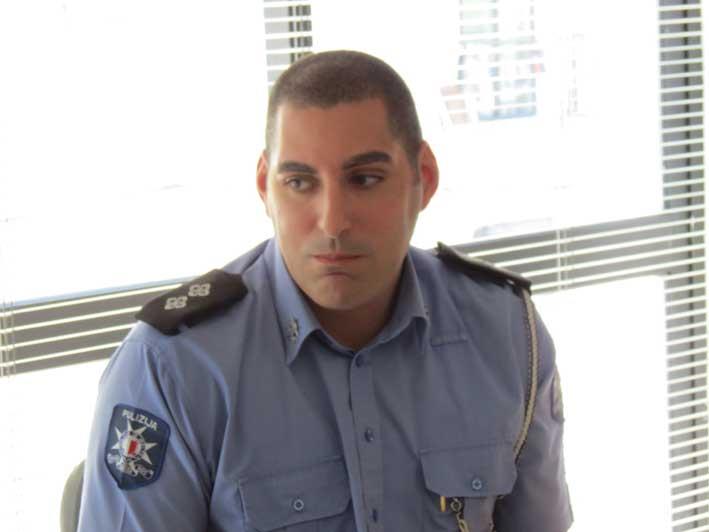
In terms of prevention, what are the police doing and what advice can be given to people to avoid them being the victims?
Ransley: Undercover policing is very important, as are general patrols both by normal police and by the Rapid Intervention Unit. However, we put emphasis on undercover policing because these perpetrators work in a crowd, so they can be spotted by a man on the ground. The concept started as a pilot project last year and has since developed to the point that we have charged at least 11 people in court and currently have cases against another 13.
In terms of what people can do, they need to recognise that this problem exists first. Preventive measures can include keeping bags closed and hanging towards the front, keeping money split in different places not in one bunch, not using the back pocket for a wallet and most definitely not leaving the PIN number of a credit card with the actual card.
Zahra: We see these things on the news and have a tendency to think that we cannot be victims of such a crime. It's important that people are aware of these things, and with these basic measures one can avoid being a target. This is because whoever is carrying out the crimes looks for the easiest target - if someone has their phone in their pocket they are an easier target than someone who has their phone in their closed bag.
Ransley: It's also very important that whoever submits a report gives us the exact location of where they think the crime took place so we can check CCTVs in that area. Likewise, it's also important to try and remember the exact time and, if the theft occurred on a bus, the bus registration number. This is imperative because otherwise it turns into a fishing expedition for us and the investigation becomes very difficult; therefore if people are precise with the details and inform us immediately, it makes our work much easier.
A lot of people say that the police don't take these reports seriously as normally the thing stolen is of nominal value - be it €20 or a mobile phone or something along those lines - because the police do not have the time to investigate such cases. What's your view on this?
Ransley: This is something I'm proud of saying; if you go abroad they'll say that they don't investigate certain cases. In Malta we investigate everything - even if it's just a matter of €20. We still investigate it as it could alert us to a whole ring of pickpockets.
Zahra: The victim might think that the amount stolen could be small and insignificant in the eyes of the police- but that is not the case; when we get a report, it lights a bulb for us because we don't see it as a single crime, but as organised crime.
Moving on to house robberies, we've received numerous reports of house robberies in the Sliema and Gzira area, reports which reminded us of 2014 and 2015 when there was a spate of burglaries in this period and possibly suggests an increase in burglaries. First of all, is it true that statistically there has been an increase?
Ransley: It's true we had a wave of burglaries in 2014 and 2015, but compared with today there isn't that number of burglaries. However, we need to keep in mind that these areas are very densely populated so there are more places susceptible to thefts, especially since a lot are occupied by foreigners. I say this, because they have more of a tendency than Maltese to leave the house or go abroad and hence they can be an easier target.
Zahra: I want to make this clear; in 2014 and 2015 we had reports of burglaries in a number of high-end apartments in these areas everyday; but definitely today we are not at that level. That time is unparalleled; the situation was such that we had to set up a whole task force to deal with it.
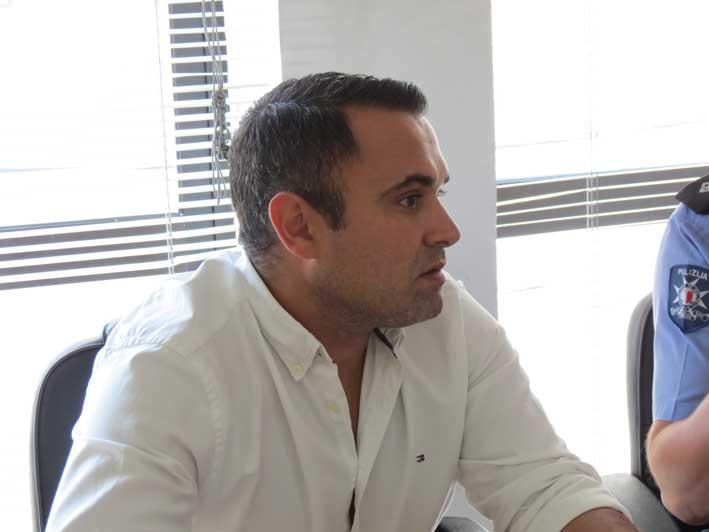
Are residential burglaries organised crime as well?
Zahra: You do have a number of thefts which are organised - like in 2014 and 2015 - but in general terms, we cannot say that it is all organised. We are always in communication with law enforcement agencies abroad, and when we see a certain modus operandi we inform them accordingly - and they do the same to us. When we see an MO that we've heard about from abroad, that sets off alarm bells. However, I cannot specifically tell you - like in the case of pickpocketing - that all burglaries are organised crimes.
When it comes to security, are there certain patterns that you identify in relation to house burglaries? Once, the police had advised the media of a red sticker which may have been a sign of such a pattern...
Ransley: We have identified patterns on how each case relates to the other - for instance in the case of the 2014 burglaries they used to leave a sock behind each time, and they used to target doors with specific safety locks - which led us to the conclusion of the infamous 'bump key'.
What if burglars are marking target houses with some sort of sign, such as a scratch?
Zahra: At the moment we are not aware of any such signals. However as a pattern, each case is different and after a case occurs there are rafts of things that we can use to relate one case with another. What is certain however is that we are not aware of any patterns being left on doors at the moment, but taking for instance the 2014 and 2015 cases - we had charged the perpetrators with around 40 burglaries, and in none of those was there a consistent pattern of signals.
Today, what advice would you give people when they move into a new house to keep it safe?
Ransley: If it's a rental house, they should change the lock. Ideally, a four-lock type is best because it takes a lot of damaging to open without the key. Definitely, one should actually lock the door. Money, gold, jewellery and other such valuables shouldn't be left around the house - a safe space should be found for them; people should even consider investing in a safe.
The Police themselves have also said that investing in alarm or CCTV systems would also help...
Ransley: Yes, but it's important that a CCTV camera is well maintained and is of good quality. Furthermore, the camera should be at a certain height that it is out of reach of a would-be burglar, placed in such a manner that the burglar would have to come into the shot.
Zahra: These things are good because they show on the outside that here is an alarm system. A burglar wants an easy target. When you indicate that there is an alarm system or a camera system in place, it tells the burglar that it is going to be harder to enter the said house. If the risk of entering the house and getting caught is too high, then the burglar will go for an easier target. It's also important that if the family is abroad, it is not shown on social media. Showing this is a free pass saying that the house is empty and can be burgled. Similarly, selfies or pictures taken inside the house showing valuables also tell a burglar of potential targets inside the house.
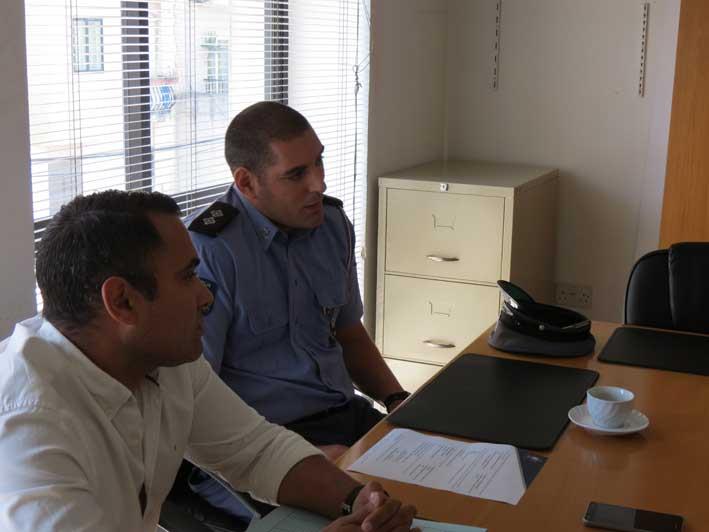
What is the police force's appeal when it comes to dealing with suspicious activity?
Ransley: What is most important is that people trust the police force. The more information we have, the safer we can keep our country.
Zahra: Something happens and people think they don't need to take action because someone else will take action instead. It's likely that everyone in the street is saying the same thing. Sometimes by reporting suspicious activity, a person would have prevented a crime from occurring without even knowing he or she had done so. They may even have prevented a burglary from happening in their own property.